Emerging Physician Scientist Program
PAPSTR supports funding for the Emerging Physician-Scientist Program, which is led by Dr. Elizabeth Gundersen, associate professor of Hospice and Palliative Medicine at the University of Colorado. Support entails up to $5,000 each which can be used to travel to a national conference or workshop. These medical students were selected by a committee process through a merit-based review and are involved in mentored research. The students and their mentors meet quarterly with Dr. David Schwartz.
2025 Scholars
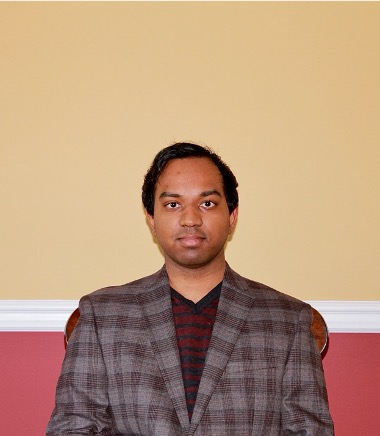
Aditya Kumar
Aditya is a third-year medical student at the University of Colorado School of Medicine who has joined the Scholar’s Year program to pursue research at the intersection of neuroscience and technology. He holds a bachelor’s degree in computer science from Georgia Tech and has previous experience in finance and tech.
He is currently working in the Department of Neurosurgery, where his project focuses on analyzing neural synchrony in patients performing cognitive tasks, using measures such as phase-locking value (PLV) and theta coherence. This work aims to deepen our understanding of dynamic neural connectivity, particularly in regions involved in emotion, memory, and executive function. Aditya hopes to build a career as a physician-researcher, applying computational tools to improve our understanding of the brain and advance patient care.
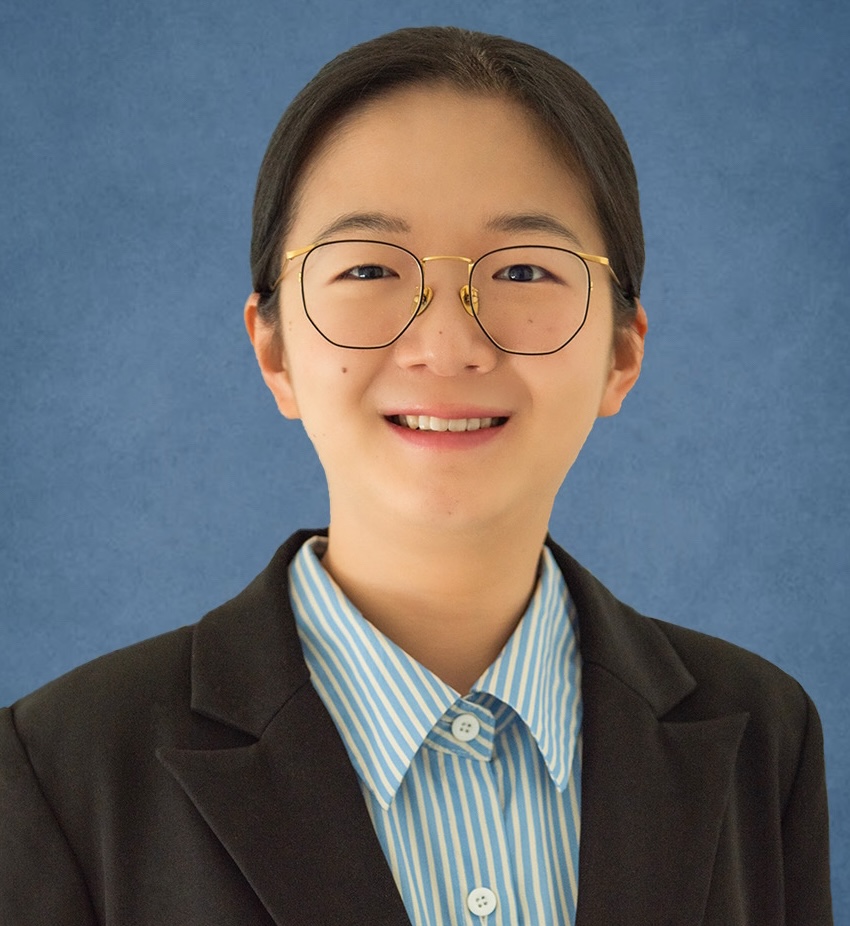
Yan Zhou
Yan Zhou is a medical student at the University of Colorado School of Medicine. She is currently pursuing the Scholar’s Year program under the mentorship of Dr. Todd Hankinson and Dr. Siddhartha Mitra in the department of neurosurgery. Her Scholar’s Year project is to investigate the biological mechanisms of radiation and drug responses of adamantinomatous craniopharyngioma (ACP), with a focus on the tumor microenvironment, using both cell culture and three-dimensional organoids. In addition to basic science project, she is also leading multiple clinical projects, including one to study ACP outcomes and disease progression using a multi-center database.
2024 Scholars
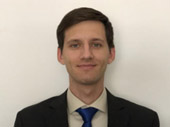 Maksym Goryachok
Maksym Goryachok
Maksym is a third/fourth year medical student who has joined the scholar's year program to pursue additional research to further support my goal of becoming a clinician-scientist. Maksym joined the lab of Dr. Sarah Clark, PhD, with the department of otolaryngology.
Maksym’s primary research project involves the understanding of host-commensal-pathogen interactions in a cell model of cystic fibrosis. These patients frequently develop unique microbiomes that predispose them to development of chronic respiratory infections with pathogens such as Staphylococcus aureus and Streptococcus pneumoniae. Commensal organisms of the genus Prevotella have been shown to provide a protective effect against infection with opportunistic pathogens. This project explores this relationship in the context of a cystic fibrosis model to better understand if and how cystic fibrosis patients may better resist these chronic pathogenic infections.
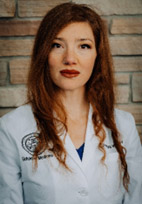
Priya Wolff
Priya is a medical student at the University of Colorado School of Medicine, where she is between her third and fourth years. Priya is dedicating a Scholar's Year during which she will draw from her diverse career experiences to facilitate a translational medicine research project.
Her research project seeks to bridge the gap between state-of-the-art optical engineering and clinical medicine. Working in collaboration with a senior engineering design team led by Boettcher Investigator and Associate Professor Jesse Wilson, PhD, from the Department of Electrical and Computer Engineering and the School of Biomedical Engineering at Colorado State University, Priya aims to integrate engineering innovations seamlessly into practical clinical applications. This initiative focuses on promoting cross-disciplinary advancements in cutaneous imaging.
The primary goal of Priya’s project is to provide primary care clinicians with non-invasive tools for the accurate assessment of skin lesions. This not only aims to reduce unnecessary biopsies and referrals but also explores potential intraoperative uses. Priya’s unique position, engaging both clinical and engineering domains, equips her to uniquely drive the success of this translational medicine endeavor, contributing a vital clinical perspective to a primarily engineering-based project.
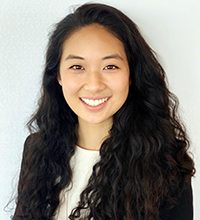 Anna Ha
Anna Ha
Anna Ha is a third-year medical student at the University of Colorado School of Medicine. She is currently pursuing her Scholar’s Year at the University of Colorado Hospital, in the department of Surgery, Division of Transplant Surgery with Dr. Yanik Bababekov and Dr. Jesse Schold. Her research focuses on the investigation of social determinants of health that contribute to solid allograft utilization including liver, kidney, pancreas, heart, and lungs. She is also involved in studies of novel perfusion technologies that aim to expand donor allografts. Her academic passions include studying health equity in transplant and women’s health.
2023 Scholars
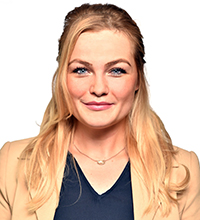 Caitlin Blades
Caitlin Blades
Caitlin is between her third and fourth years at the University of Colorado School of Medicine. She aspires to become a Clinician-Scientist in the field of plastic surgery and is currently pursuing a Scholar's Research Year in the lab of Drs. David Mathes and Christene Huang, in the Department of Surgery, Division of Plastic and Reconstructive Surgery. This year, Caitlin has focused on the investigation of the role of the immune system in the pathophysiology of keloid scars.
As the project lead, she has been diligent in her pursuit of keloid, hypertrophic scar, and healthy skin samples. She obtains consent from patients in the clinic, utilizes surgical techniques to harvest samples, and analyzes tissues in the lab. Eager to expand her project, Caitlin will be pursuing an additional research year to uncover specific mRNA molecules and cellular heterogeneity that may be contributing to keloid pathogenesis and their high recurrence rates. Considering the current lack of research regarding the etiology of these lesions, which primarily affect minority populations, Caitlin’s investigations could place us one step closer to an effective, universal treatment option.
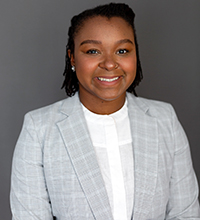 Shaquia Idelett-Ali, PhD
Shaquia Idelett-Ali, PhD
Shaquia Idlett-Ali, PhD, is medical student at the University of Colorado completing a scholar year in the laboratory of Sana Karam, MD, PhD within the Department of Radiation Oncology. Prior to entering medical school, Shaquia completed her PhD in Biomedical Engineering from the Coulter Department of Biomedical Engineering at Georgia Tech and Emory University. Her current research project is titled "Targeting nerve-mediated immunosuppression in the tumor microenvironment of head and neck squamous cell carcinoma.” The objective of this project is to understand the contributions of sensory nerve activity and neuropeptide release on: (1) immune cell infiltration in the tumor microenvironment and (2) treatment response to radiation and immunotherapy.
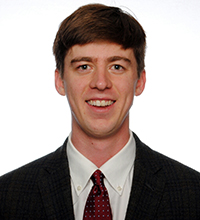 Gordon Matthewson
Gordon Matthewson
During the 2023-2024 scholar’s year, Gordon will be examining discrepancies between memory care patients and their caregivers, and how these relate to clinical trajectories. For example, if a patient with Alzheimer’s Disease rates their mood or functional status as high, but their caregiver rates it as low, is this a predictor of more advanced or severe disease? Do these discrepancies indicate a worse prognosis for memory care patients, or a higher burden in their caregivers? These questions will be explored using the Standard of Care Rates Database (SoCRates), a collection of standardized surveys and clinical data gathered between 2017 and 2023 at CU’s Memory Disorders Clinic. This database is Python-based, and its backbone is code he helped write in 2020 while working as a Research Assistant in the Neurology department here at CU. Currently, he is using Python’s data science packages to write scripts that align standardized measures for analysis, perform quality control, and use text-scraping methods to pull additional standardized measures out of physician notes.
This is a large enough dataset for Gordon to become proficient with scientific computing methods such as vectorization, yet the benefit of working with such a large amount of data is that any robust patterns in patient-caregiver discrepancies and how they relate to patient outcomes have a good chance of emerging. Through this work, he hopes to advance our understanding of these discrepancies, and also provide important characterization metrics of the patient population here that will support CU’s Memory Disorders Clinic as a center.
Contact Us
David Schwartz, MD
Program Director
[email protected]
Jennifer Kemp, PhD
Associate Program Director
[email protected]
Sarah Miller
Business Coordinator
[email protected]